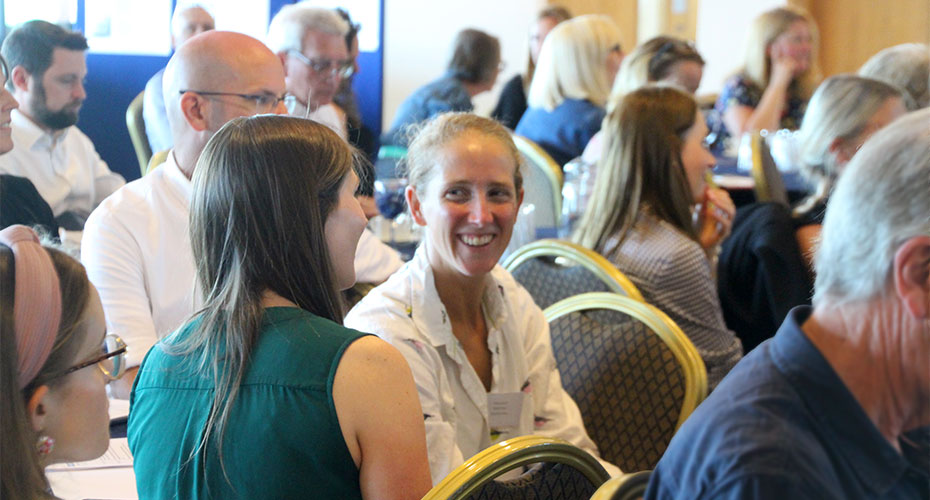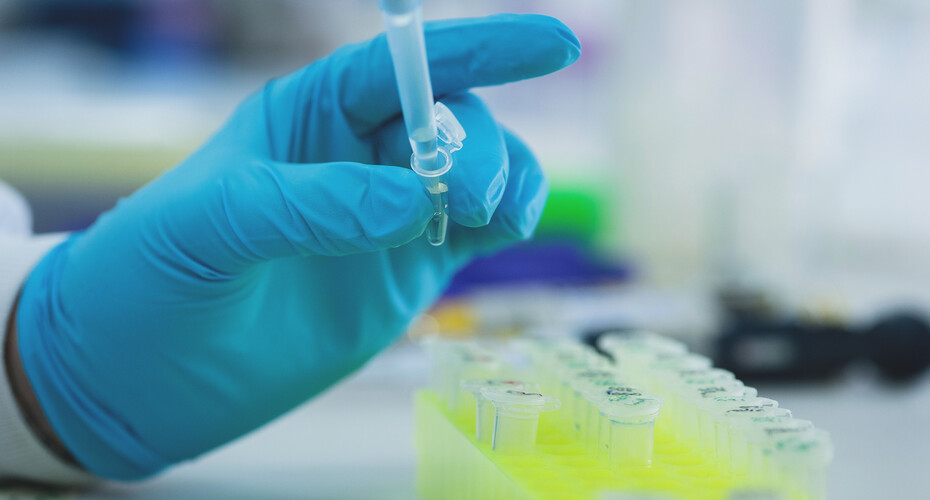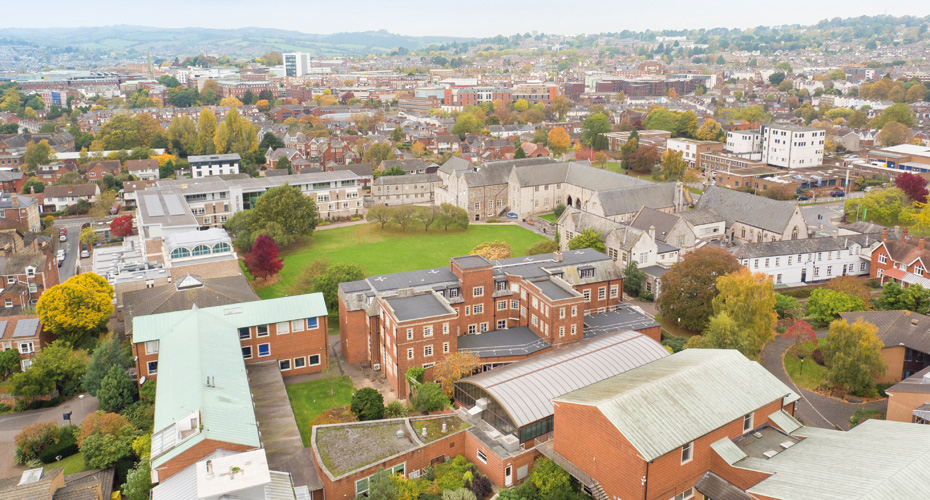Primary Care
Ninety per cent of patient contact in the NHS takes place in primary care. Short hospital in-patient stays have led to an increased focus on primary care. General practices have identifiable lists of patients, providing an important opportunity for high quality primary care-based research.
Researchers within this group have attracted substantial research income since 2004. We work closely with colleagues elsewhere within the Medical School, across the University and more widely within the UK and internationally.
Our team
| Member of staff | Position |
|---|---|
| Professor John Campbell | Professor of General Practice and Primary Care |
| Associate Professor Gary Abel | Senior Lecturer and Statistician |
| Kasim Allel Henriquez | Postdoctoral Research Associate (AMR) |
| Dima Arafah | PhD Student |
| Jenny Amesbury | Project Administrator (REACH-HF) |
| Dr Jo Butterworth | Postgraduate Research Student |
| Mary Carter | Research Fellow (SPOCC) |
| Dr Christopher Clark | Clinical Senior Lecturer in General Practice |
| Dr Emma Cockcroft | Research Fellow and NIHR SPCR Postdoctoral Research Fellow |
| Dr Rosina Cross | Postdoctoral Research Associate |
| Associate Professor Hasnain (Hayes) Dalal | Clinical Associate Professor & Senior Clinical Researcher |
| Associate Professor Philip Evans | Associate Professor of General Practice & Primary Care |
| Emily Fletcher | Research Fellow and PhD student |
| Dr Lisa Gibbons | Hon Clinical Associate Research Fellow |
| Professor David Halpin | Consultant Physician and Hon Professor |
| Caroline Jenkinson | Postdoctoral Research Fellow |
| Ellie Kingsland | PA to Professor of General Practice & Primary Care |
| Dr Judit Konya | HEE Funded Research Fellow |
| Dr Sinead McDonagh | Postdoctoral Research Fellow |
| Dr Mike Noble | Honorary Clinical Lecturer |
| Charlotte Reburn | SPCR PhD Student |
| Professor Suzanne Richards | Exeter Associate |
| Dr Emma Pitchforth | Senior Lecturer in Primary Care |
| Dr David Seamark | Honorary Senior Clinical Research Fellow |
| Dr Anna Price | Research Fellow |
| Mr David Shotter | Graduate Research Assistant |
| Dr Jane Smith | Senior Lecturer in Primary Care |
| Bethan Treadgold | Postdoctoral Research Fellow |
| Dr Sam van Beurden | Postdoctoral Research Fellow |
| Dr Fiona Warren | Senior Lecturer in Statistics |
| Dr Bianca Wiering | Postdoctoral Research Fellow |
| Rachel Winder | Research Fellow |
Research
Current projects
-
One Health drivers of antibacterial resistance in Thailand. On UKRI and The University of Bristol
- Co-calibrating Momentary Assessments for Physical and Psychological Outcomes with Quality of Life Measurements in Hip Arthroplasty and Cervical Myelopathy Surgeries (CoQoL@hip2neck Study)
- Digital Facilitation in Primary Care (Di-Facto)
Studentships
- PhD studentship for Dima Arafah
- Post-doc fellowship for Dr Sam van Beurden "Taking back control: dealing with impulsive processes in digital health behaviour change"
GPPS
The NHS needs clear, detailed feedback from patients to monitor the work of primary care clinical teams. Research from the University of Exeter framed the annual national GP Patient Survey (GPPS) - one of the world’s largest annual patient surveys, covering all 6900 practices, and over 14 million patients in England since 2014. The resulting impact has been:
- GPPS is routinely used to measure and monitor the quality of GP services
- New national policies have been introduced revising service provision
- The public, regulators, and service providers have been better informed of patient experience of general practice.
The £2.9M NIHR/DH funded research programme IMPROVE and related research at Exeter (2008-2015) was developed to respond to the core NHS requirement of improving patient’s experience of healthcare.
The programme focussed primarily on two aspects of patient experience:
- Communication in consultations
- The ability of the patient to see a doctor of their choice.
Exeter University researchers led four of the seven work packages within the programme of research. The IMPROVE programme focussed on the potential utility of patient surveys as a means of capturing valid and reliable information on patient’s experience of care, and as a means of providing actionable information on service delivery.
Related grants:
1. NIHR programme Grant for Applied Research. Improving patient experience in primary care: a multimethod programme of research on the measurement and improvement of patient experience. Prof Campbell is joint chief investigator, and led 4 of the 7 work packages (1st Oct 2010 – 30th Sep 2015)
2. DH/IPSOS Mori Development and preliminary assessment of GP patient survey instrument. Prof Campbell is joint chief investigator (1 Oct 2008-30 Sep 2010).
3. IMPROVE Research Capability Funding’ Cambridgeshire NHS (1st Aug 2013 – 31st March 2016).
References
1. Campbell J, Smith P, Nissen S, Bower P, Elliott M, Roland M. The GP Patient Survey for use in primary care in the National Health Service in the UK–development and psychometric characteristics. BMC family practice. 2009 Dec;10(1):57.
2. Roberts MJ; Campbell JL; Abel GA; Davey AF; Elmore NL; Maramba I; Carter M; Elliott MN; Roland MO; Burt JA. Understanding high and low patient experience scores in primary care: Analysis of patients’ survey data for general practices and individual doctors. 2014. BMJ (Online) 349(nov11 3):g6034
3. Burt J; Newbould J; Abel G; Elliott MN; Beckwith J; LLanwarne N; Elmore N; Davey A; Gibbons C; Campbell J et al. Investigating the meaning of ‘good’ or ‘very good’ patient evaluations of care in English general practice: A mixed methods study. 2017. BMJ Open 7(3):e014718
4. Mujica-Mota RE; Roberts M; Abel G; Elliott M; Lyratzopoulos G; Roland M; Campbell J. Common patterns of morbidity and multi-morbidity and their impact on health-related quality of life: evidence from a national survey. 2015. Quality of Life Research 24(4):909-918
5. Warren F, Abel G, Lyratzopoulos G, Richards S, Barry H, Elliott M, Roland M, Campbell J. Characteristics of service user and provider organisation associated with experience of out-of-hours general practitioner care in England: population based cross sectional postal questionnaire survey. BMJ 2015; 350: h20407.
6. Roland M, Campbell J, Burt J. Improving patient experience in primary care: a multi-method programme of research on the measurement and improvement of patient experience final report. NIHR Journals Library. 2016. 300pp https://www.ncbi.nlm.nih.gov/pubmed/28654227
See our publications







